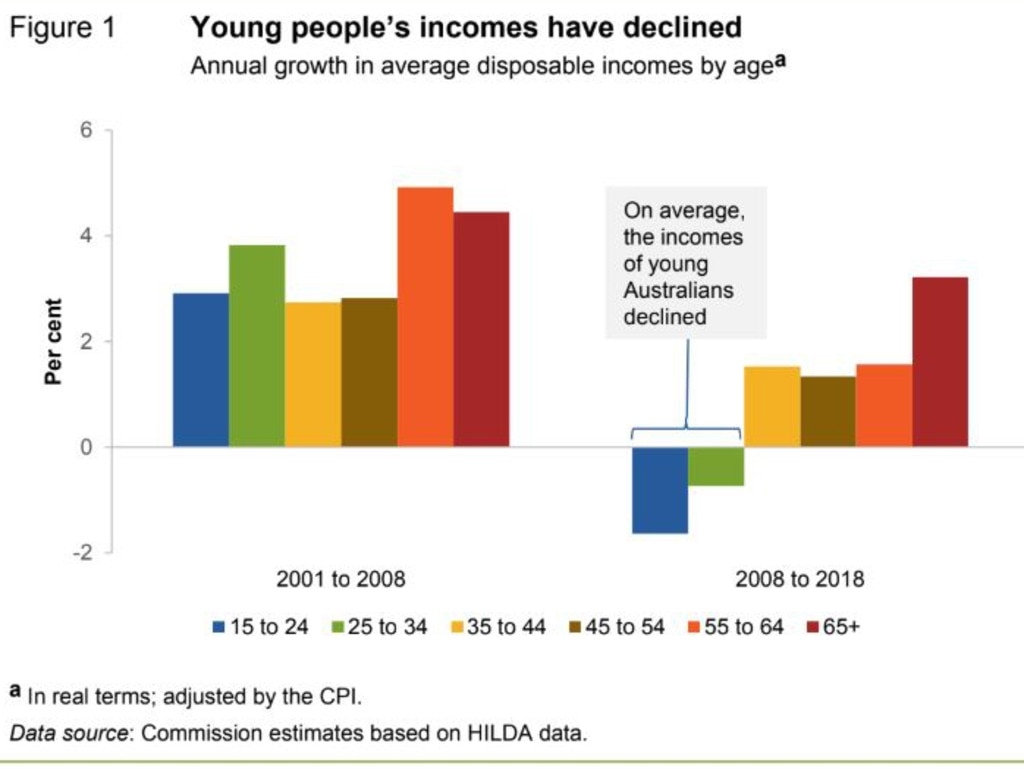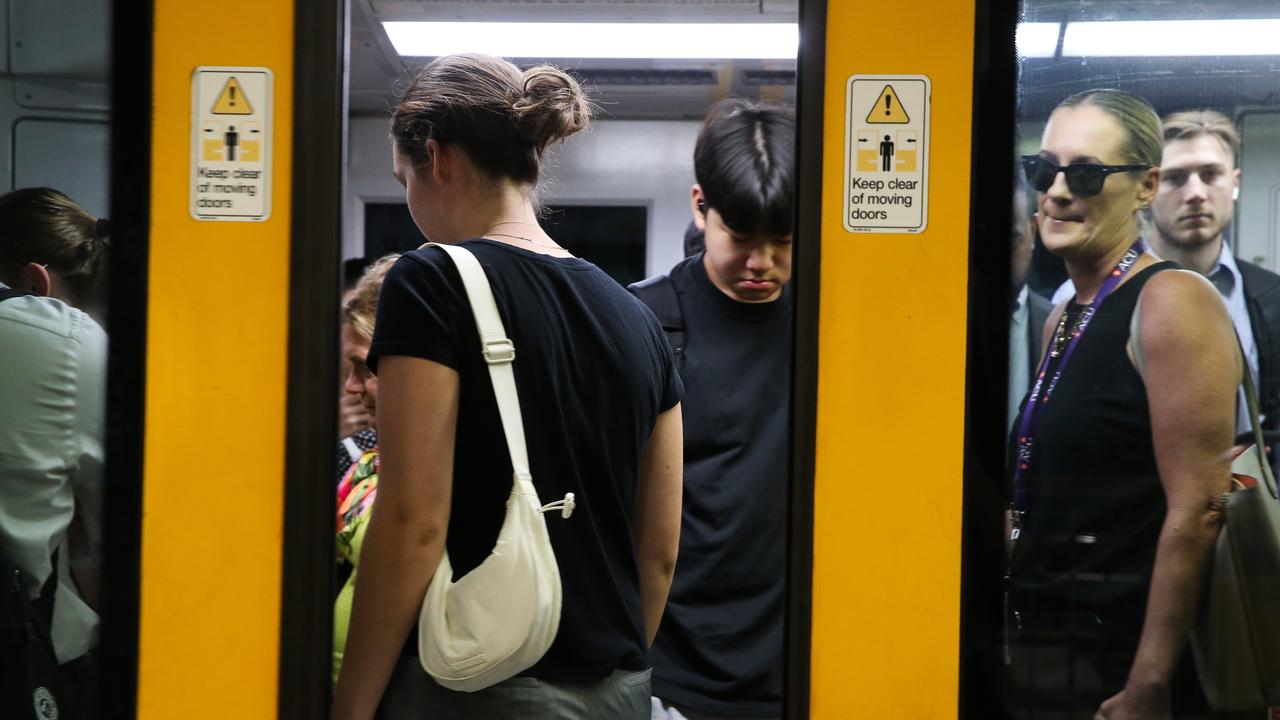Young Australians face ‘lost decade’ of income, Productivity report claims
Aussies under 35 have suffered a “lost decade” of income and had their careers “scarred” in ways they may never recover from.

Young people in Australia have faced a “lost decade” of income while older workers have seen wages increase at their expense.
That’s according to a new Productivity Commission report, Why did young people’s incomes decline? that found between 2008 and 2018 those aged 18-34 in Australia saw their incomes stagnate.
The impact has led to career “scarring” that has never recovered and could be exacerbated even further by the coronavirus pandemic.
Commissioner Catherine de Fontenay said there was no doubt “young people have experienced a ‘lost decade’ of income growth” in the ten years prior to 2018.
“This means they entered the COVID-19 crisis already on lower wages and usually with limited savings.”
“Young people face discouraging prospects in a tough job market; and there is a danger they will simply give up on their aspirations as they take positions further down the jobs ladder,” she said.
“It turns out that the ‘low wage growth’ story is essentially a story about people under 35. If we look at average wage growth for those over 35, it hasn’t slowed.”
RELATED: Aussies to face worst deficit since WWII


RELATED: Pandemic creates larges economic slump in 72 years
MORE COMPETITION, LOWER WAGES
The debate over wanton millennial spending on smashed avocado on toast versus baby boomer ‘make do and mend’ frugality has been a national pastime for years.
However the report clearly shows that young people’s job prospects have been affected by the aftermath of the global financial crisis (GFC) in ways that have followed them throughout their careers.
It notes that changes in labour demand and supply post-2008 have led to more graduates competing for less roles. At the same time, people over 55 have opted to retire later and many businesses, faced with increased choice for new starters, have opted to cut wages for new hires rather than existing staff.
That has meant young workers being forced to start on lower salaries and take jobs that did not fully utilise their skills or opt for part-time work instead.
At the same time, federal belt-tightening saw government support payments such as Youth Allowance and Family Tax benefits tightened for young people as they are indexed to consumer prices, while the Age Pension has risen because it is indexed to wage rates.
RELATED: Day the economy could fall off a cliff


RELATED: Millenials bust spending myth
BANK OF MUM AND DAD
As a result, young people have been forced to turn to their parents for support or stay longer in the family home.
“While these intra-family transfers have helped cushion the fall in young people’s income, they have not been possible for all families, especially low income families,” Commissioner Catherine de Fontenay said.
The report claims transfers from parents have grown substantially in the last ten years, with more funds given to kids who moved out of home.
That has helped “cushion” some young people from the decline in expected income, but they are not possible for all families and low-income families transfer less and are less likely to have kids at home.
The report also found a persistent inability to move up the jobs ladder over time led to “scarring” on careers, with long-term negative impacts on wages and job choices.
“We find that after 2008 young people obtained work in lower-scored occupations than did comparably-skilled young people before 2008; on balance they were worse off by 2018 than in 2001,” it notes.

WHAT WILL HAPPEN POST COVID?
The findings show that in 2008 those over 35 were insulated from the worst effects of the labour market crisis as many were already in work rather than seeking it.
This could provide a clue as to how the coronavirus pandemic will hit young people in Australia, who are again set to endure “scarring” of their careers.
“They might struggle to find employment, a job that fits their training, the number of hours they wish or require, or wage rates or career progressions comparable to those of earlier generations,” the report states.
In addition, the report claims that headline unemployment rates often don’t tell the full picture of the labour market with lower starting wages, wage growth, opportunities and less hours all playing a role that can affect career trajectories over time.
The prevalence of young people in sectors like hospitality, retail and tourism could also mean many are hit harder in the current pandemic, leading to added pressure on the ‘bank of mum and dad’.
“The inescapable conclusion of this study is that because of slower income growth, young people were not able to build their savings at the same rate as earlier generations leading to a ‘generational divide’,” it said.
The study finds there is no easy answer for how to solve the problem but claims the impact of any tax increases to recoup the cost of budget blowouts during the pandemic on young people, need to be taken into account.
It also advocates easier access to education which could enhance employees attractiveness and allow them to “postpone their entry into the job market until conditions improve.”
How has the pandemic affected your working life? Tell us in the comments below.
victoria.craw@news.com.au | @Victoria_Craw




